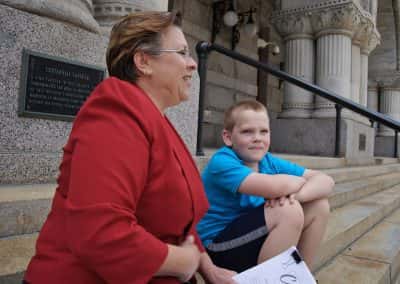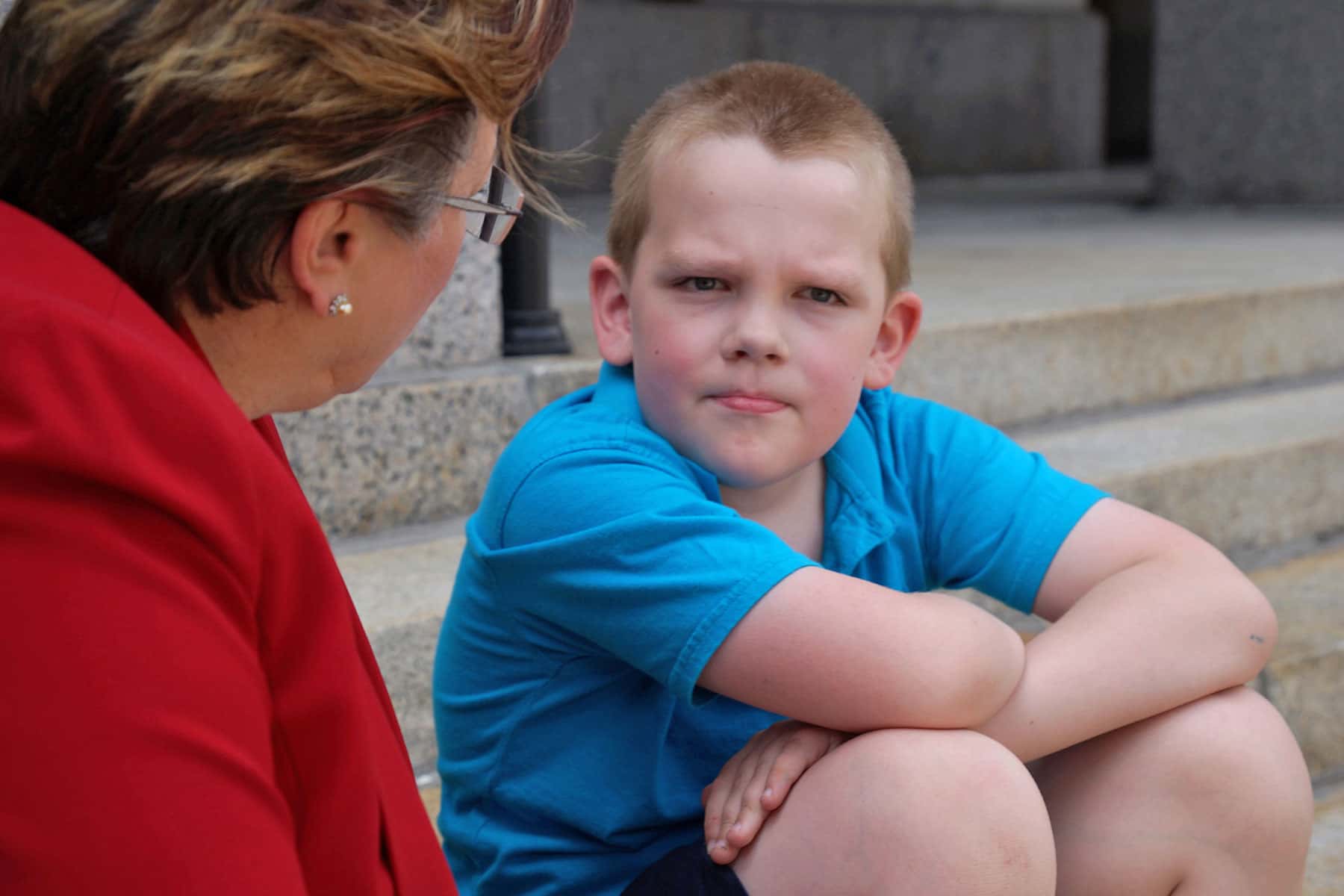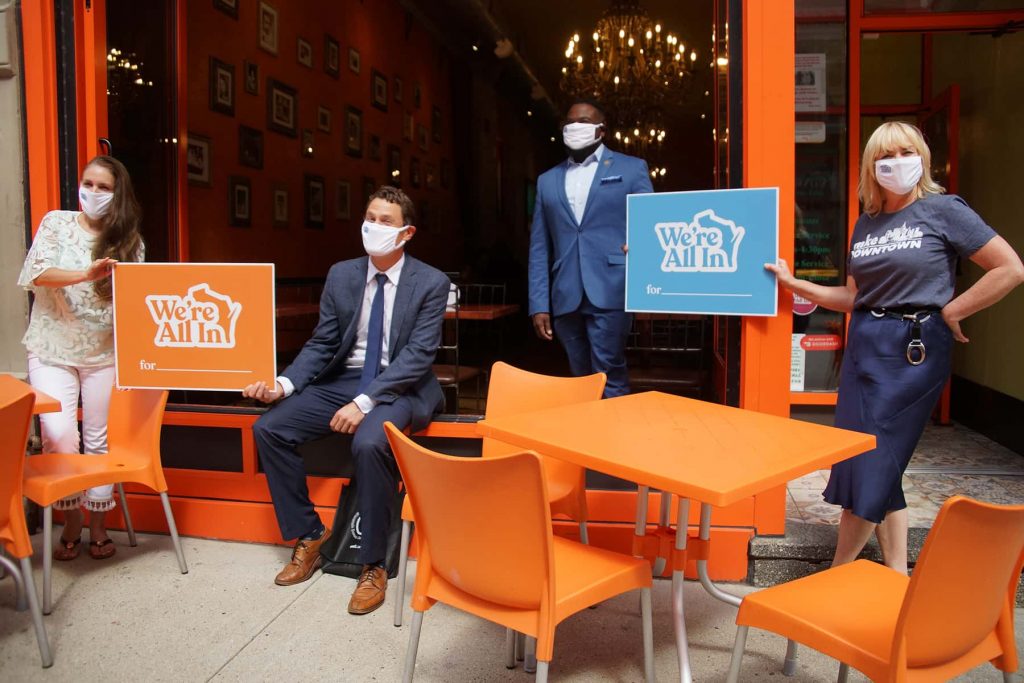
Health care advocate Cathy Myers delivered a petition in support of Jack, a boy with a rare genetic disorder, to Senator Ron Johnson’s office in Milwaukee on June 29.
While the Republican bill in the United States Senate continues to suffer from recent setbacks, residents of Wisconsin have remained committed to stop the Ryan-Trump Health Care Plan. At stake is the loss of health coverage for 22 million Americans, with a direct impact to Milwaukee’s underserved population.
One of the challengers for Paul Ryan’s seat in the U.S. House of Representatives, Democratic congressional candidate Cathy Myers, launched a petition drive to stop the roll back of vital ACA protections. The 1,600 signatures were collected to urge a No vote by U.S. Senator Ron Johnson.
“The Ryan-Trump Health Care Bill stacks the deck against working people, middle-class families, and anyone who has a pre-existing condition. Whether your health care covers patients with genetic disorders as rare as Jack’s or people who have undergone routine C-sections like myself. The bottom line is that this bill touches all of our lives, and so many stand to lose.”
Among those supporters delivering the petition was a 9-year-old boy named Jack, who Myers met on a motorcycle trip through Wisconsin in early June. Jack suffers from a rare genetic disease, and his situation highlights the dangers proposed by the pending bill, which would end his medical treatments.
“I was born with this pre-existing condition that makes me have no antibodies. It’s called Bruton’s X-Linked Agammaglobulinemia, or XLA,” said Jack. When asked what would happen if he lost his health care, he added, “Basically, I dіе.”
Children’s Hospital of Wisconsin saved Jack’s life by working with his father to find a diagnosis for his condition, after the sudden and mysterious dеаth of his older brother Henry. It was originally believed that the 3-year-old had dіеd of septic shock.
The condition leaves Jack with no inherent resistance to bacteria, and requires a treatment process that will extend for the rest of his life. Twice a month he is given an intravenous immunoglobulin (IVIG) infusion at Children’s Hospital in Milwaukee, using four needles in a procedure that takes up to 4 hours, to give him antibodies through the plasma extracted from one thousand blood donors.
Insurance companies classify Jack in the high risk pool, which makes costs even more expensive. Not counting premiums, his family has paid out of pocket over $125,000 in the past seven years, and they continue to struggle financially to keep him alive.
Children’s Hospital and the Medical College of Wisconsin pioneered the newborn screening for Severe Combined Immunodeficiency (SCID). There is currently a viable XLA screening at birth for $2, a test that would have saved Henry’s life. And while there are treatments for XLS, insurance companies have lobbied against any state offering the testing even though other incurable diseases for which there is not treatment are routinely screened.
Passage of the Ryan-Trump Health Care Plan would return an insurance ceiling to the old lifetime cap amount. Jack would reach that limit in around 3 years. His treatments today cost $5,000 a month, but when 9-year-old Jack reaches adulthood they are expected to be $32,000. Without a guarantee that insurance companies will cover his pre-existing condition, something he was born with, Jack would be uninsurable by the time he hits puberty.
“Jack shouldn’t have to worry about getting older because in the richest county in the world, health care for kids like Jack should be a right, not a privilege,” added Myers.
Editor’s Note: There is an often unspoken fear for individuals to step forward and talk about their medical conditions, especially in the workplace. Healthy single employees can become disgruntled that their medical premiums are higher due to an illness in a co-worker’s family. Vulnerable individuals worry about keeping their jobs and so remain silent. In addition, the public discussion in Milwaukee and across America is no longer about how our society should care for its sick members but on the political ideology of who should or should not pay to keep fellow citizens healthy. Considering this situation, the Milwaukee Independent has purposefully not identified Jack or members of his family.
© Photo
Lee Matz

























